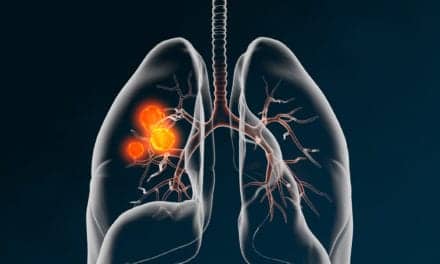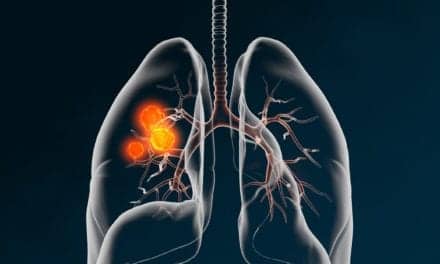Freenome, a privately held company developing multiomics blood tests for early cancer detection, announced the initiation of its PROACT LUNG study intended to validate the clinical performance of the Freenome blood test for lung cancer screening.
The test combines lung cancer-specific biomarkers with cancer-common markers identified on Freenome’s proprietary multiomics platform. This is Freenome’s second blood-based test developed on the platform and being evaluated in a prospective clinical study, Freenome says. The company also provided an update on its lung cancer research, including the ongoing Vallania study.
Early detection of lung cancer, while in its most treatable stage, leads to better clinical outcomes for patients.(1,2) Recently, the United States Preventive Services Task Force expanded the recommended ages and smoking history for lung cancer screenings, reaffirming the importance of early detection. In people at high risk for lung cancer, annual screening with a low-dose CT (LDCT) scan is typically recommended as part of the standard of care (SOC). However, only about 5.8% of eligible people are screened for lung cancer,(3) with fewer than 25% of them adhering to recommended annual screenings.(4) LDCT also has drawbacks, including the potential of exposing patients to unnecessary radiation5 and false-positive rates that range from 9% to 50%.(2,6)
Further reading: Liquid Biopsy Predicts Immunotherapy Response, Toxicity in Advanced Lung Cancer Patients
Foundational to Freenome’s scientific approach is the knowledge that no single technology can detect every cancer due to the intrinsic heterogeneity of the disease. Freenome’s multiomics blood-based screening platform, research programs, and clinical studies seek to provide insights into the molecular underpinnings and commonalities across cancer types. In turn, this knowledge is used to enhance screening capabilities, the company says.
“Despite treatment advances, lung cancer remains the deadliest cancer worldwide, in part because it is often detected late. Freenome is answering the call for better screening tools with a test that identifies the diverse range of biomarkers associated with this highly heterogeneous cancer,” says Lance Baldo, MD, chief medical officer of Freenome. “Our expanding healthcare partnerships will increase access to these improved tools.”
References:
- Schenk EL, et al. (2021). Oncologist. 26(3): e454-e472.
- Aberle DR, et al. (2011). J Natl Cancer Inst. 103(23):1771-1779.
- American Lung Association. (2022). State of Lung Cancer 2022. Retrieved from https://www.lung.org/getmedia/647c433b-4cbc-4be6-9312-2fa9a449d489/solc-2022-print-report
- Silvestri GA, et al. (2023). Chest. 2023 Jul;164(1):241-251.
- de Koning HJ, et al. (2020). N Engl J Med. 382(6):503-513.
- Patz EF Jr, et al. (2014). JAMA Intern Med 174(2):269-274.




